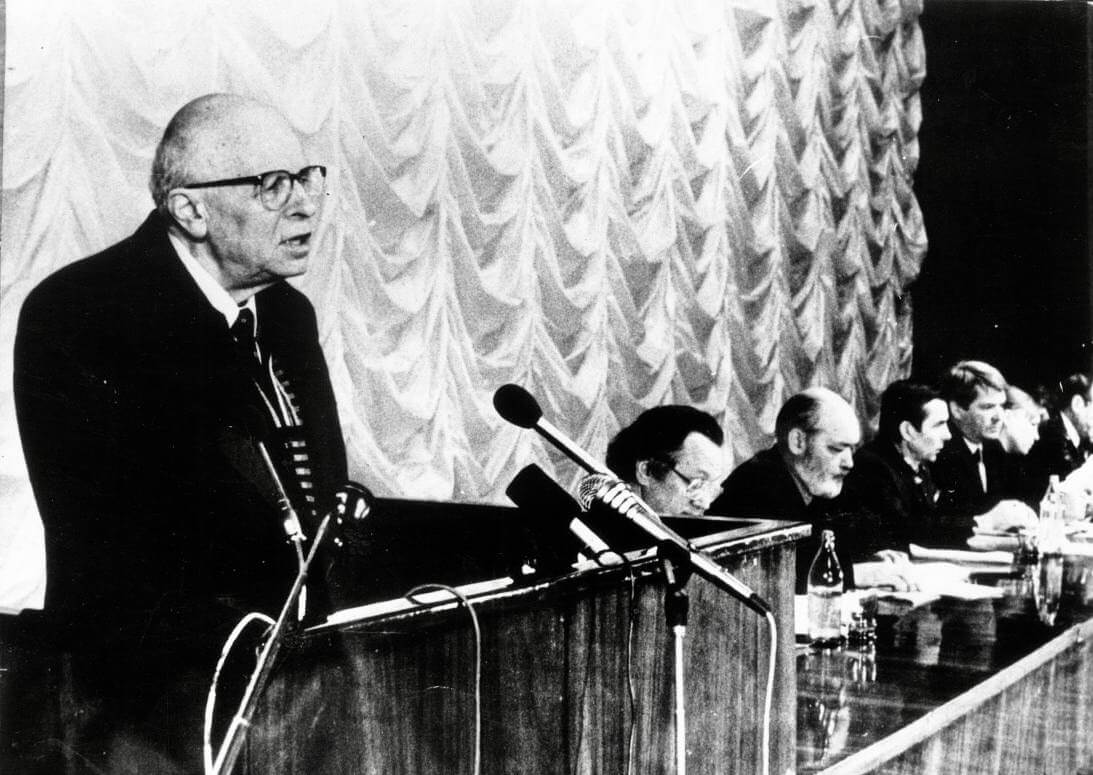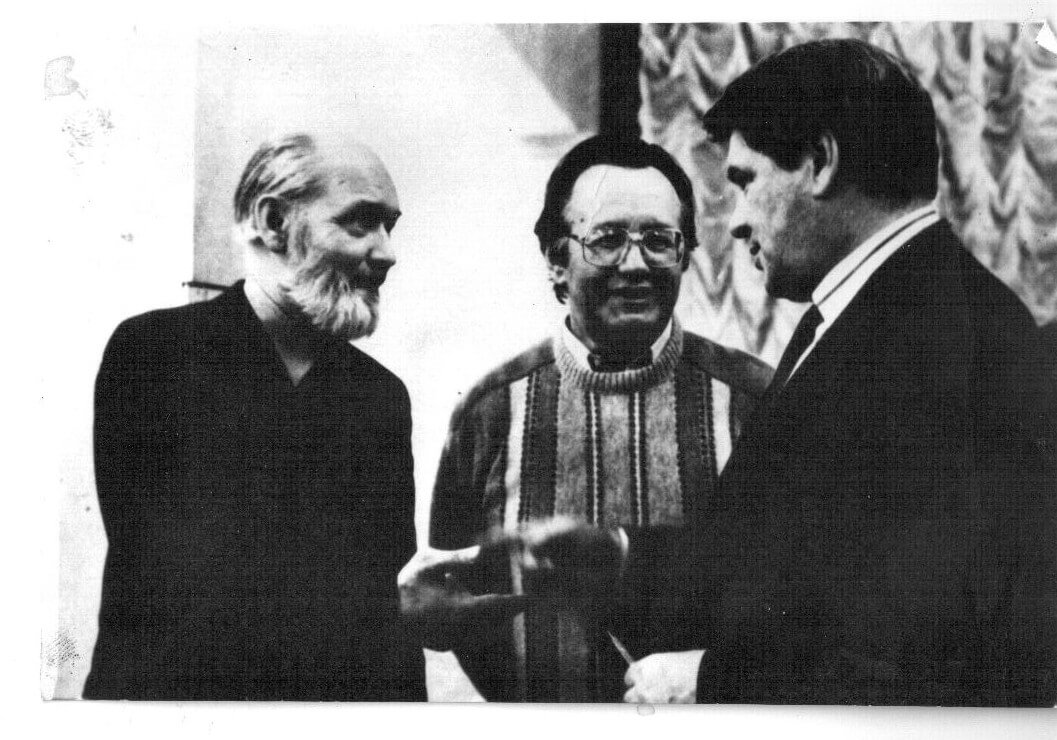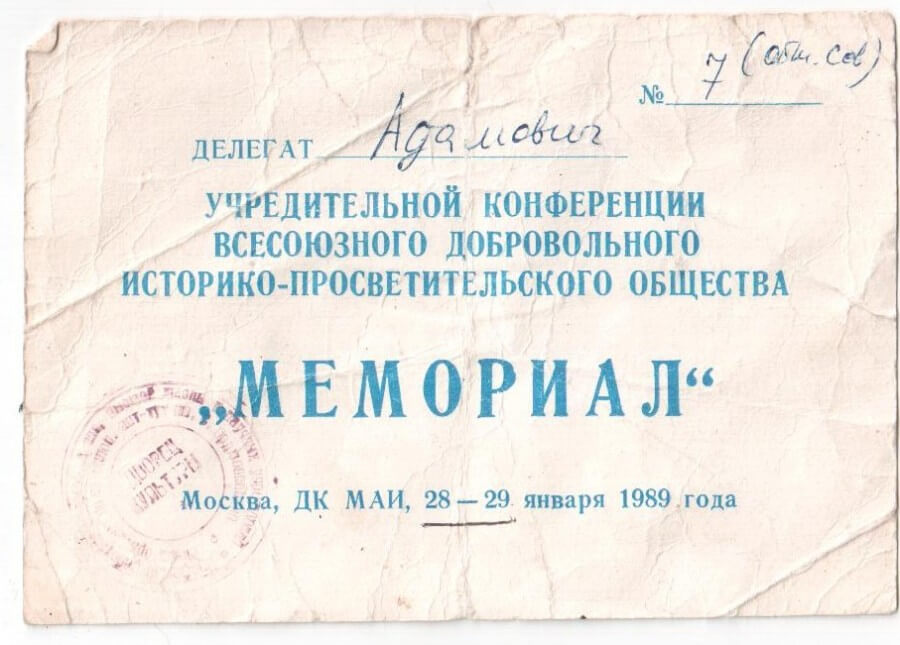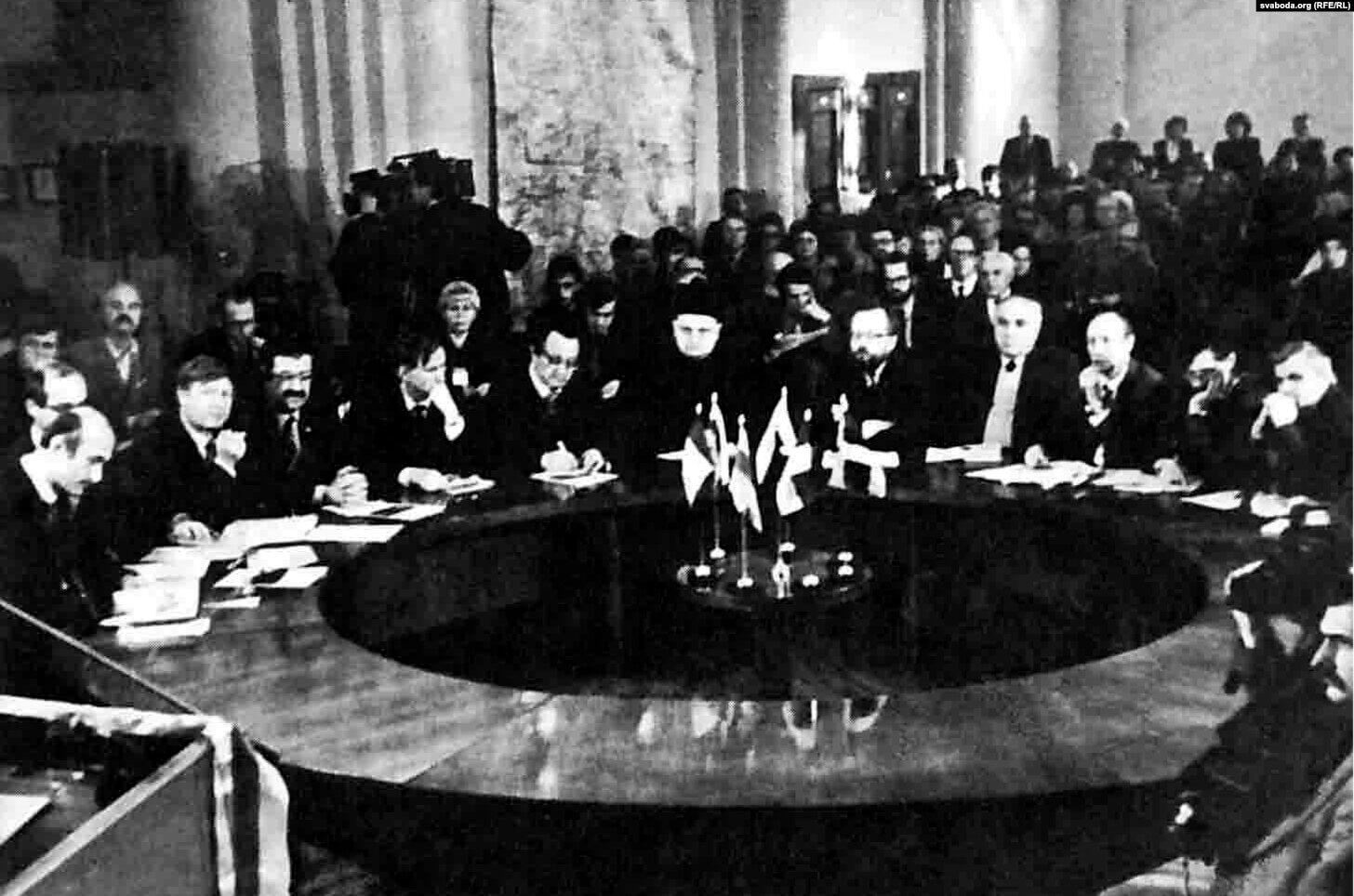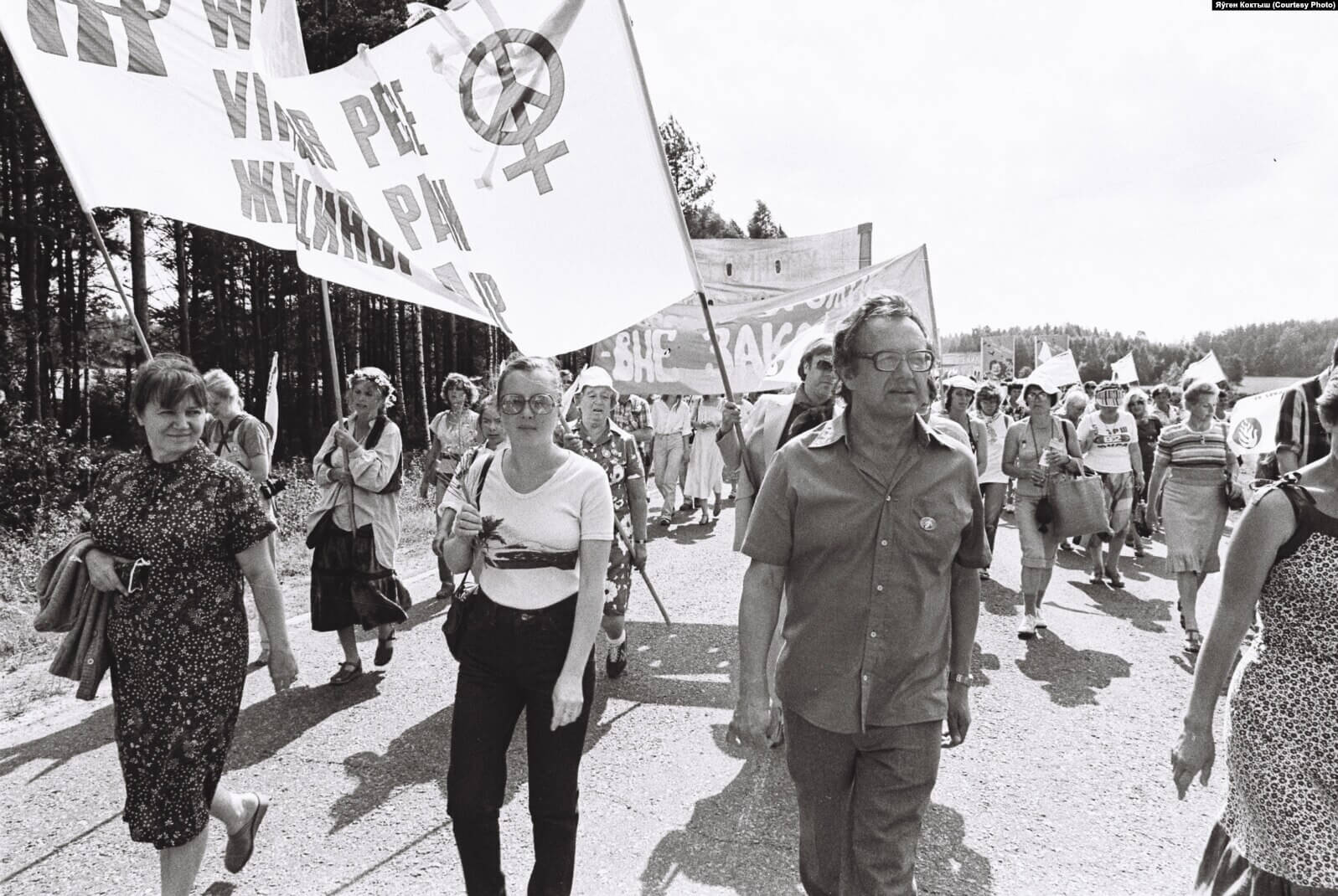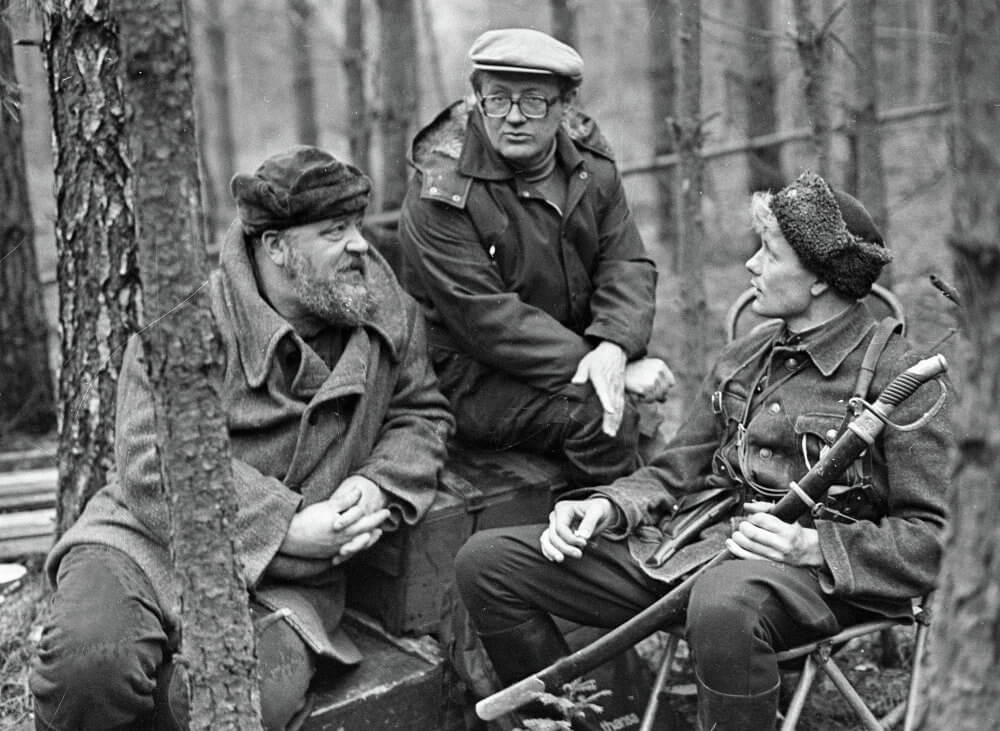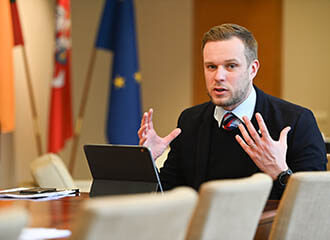На русском языке:
Одним из основателей «Мемориала» был беларусский писатель Алесь Адамович
На беларускай мове:
Адным з заснавальнікаў «Мемориала» быў беларускі пісьменнік Алесь Адамовіч
On October 7, 2022, the Nobel Peace Prize was awarded to Ales Bialiatski, a Belarusian human rights activist, the founder of the human rights center Viasna and a political prisoner, the Ukrainian Center for Civil Liberties and the Russian organization Memorial. For the Belarusian people, this is the second Nobel in the last few years, but the fact is that Belarusians are related to another current laureate.
Siarhei Navumchyk, a Belarusian journalist, politician and member of the Supreme Council of Belarus in 1990-1996, published an archive photo in his Telegram channel, in which the famous physicist, human rights activist and politician Andrei Sakharov is standing behind the podium, and next to him you can see a Belarusian humanist writer and public figure Ales Adamovich.
The second from the left is Ales Adamovich in the photo from the Constituent Assembly of Memorial, 1989. / Navumcyk
This picture was taken on January 28, 1989 — on that day the conference began, at which Memorial, the organization for the study of political repression in the USSR, was officially established.
The fact that Ales Adamovich took an active part in the creation of the main organization for identifying the names of those repressed in Stalin’s times is evidenced not only by the picture. You can find the text of the resolution on the internet that was adopted during this conference, and there our compatriot is mentioned in at least three paragraphs, from which we learn that Ales Adamovich:
- was a member of the Public Council of the Memorial foundation,
- was nominated as a candidate for people’s deputies of the USSR,
- was a member of the Scientific Council of the Memorial society research center.
Yury Karakin, Ales Adamovich, Yury Afanasyeu at the founding conference of the Memorial Society, 1989 / irinakiu
There is also a scanned paper on the Memorial’s website with the counting of votes for candidates for the Memorial Public Council, among the candidates was Adamovich with 53 votes.
Ales Adamovich among the candidates during the counting of votes for the Memorial Public Council / prequel.memo.ru
Another archival proof of Adamovich’s participation in the creation of the organization is his ticket of a delegate at the conference on the official establishment of Memorial.
Ticket of delegate Adamovich at the conference on the official establishment of Memorial / irinakiu
What else should you know about Ales Adamovich?
Adamovich is an outstanding Belarusian writer, as well as a public figure, screenwriter and participant of the national democratic movement of the 1980s.
It was Adamovich who became one of the first to raise the topic of the Chernobyl disaster in literature, its real scale. Moreover, the topic of the atom worried him long before the Chernobyl Nuclear Power Plant, for example, in 1981 he wrote:
«There is no inscription «emergency exit» on any doors on the planet. There will be nowhere to run in case of a nuclear fire.»
That is, Adamovich was one of the first to realize the possibility of the death of humanity and ring the bells. After the disaster, he interviewed physicists, doctors from Minsk and Moscow about the possible consequences of the incident at the Chernobyl NPP. He collected evidence and wrote a letter to Mikhail Gorbachev in order to convey to him and the world community the real scale of the disaster that struck Belarus.
Ales Adamovich, Zianon Pazniak, Vasil Bykau, Yuras Khadyka, Mikhas Tkachou at a meeting of the Chernobyl Public Tribunal, 1989 / Svaboda
But the party leadership of the BSSR, instead of properly using the intellectual potential and organizational abilities of Ales Adamovich, organized an obstruction in the press, accusing him of pacifism and alarmism. Because of this, the writer was forced to leave Minsk and move to work in Moscow, where in the fall of 1987 he was elected the director of the All-Union Research Institute of Cinematography.
It’s notable that Adamovich put the Chernobyl tragedy for Belarus in the same line with Kurapaty and Khatyn.
«The perpetrators of Chernobyl must be tried. After all, if we don’t stop this irresponsibility, this mutual responsibility and big lies at all levels, we will not be saved from Chernobyl and from inevitable new catastrophes,» he wrote.
Adamovich spread the truth about the Chernobyl NPP by all possible means, he was one of the initiators of the creation of the Children of Chernobyl Foundation in Belarus, thanks to which millions of children could get rehabilitation abroad. And in 1987, he finished the script of the movie «The Name of this star is Chernobyl», which was approved by the Columbia Pictures film company, and a famous American Stanley Kramer was supposed to be the director, but unfortunately, Kramer couldn’t shoot the movie for personal reasons.
Ales Adamovich at the head of the March of Peace-1982 / Yauhen Koktysh
However, there were many other movies by Adamovich that were released. The main one could be «Go and see» based on the writer’s books «The Khatyn story» and «Punishers». «Go and See» is considered to be one of the best movies about war in the history of cinema.
Ales Adamovich on the set of "Go and See" / nlb.by
In 1985, the film won the first prize and the gold prize at the XIV Moscow Film Festival and was shown on screens of many countries in the world, causing a huge response. According to the memoirs of Elem Klimau, the movie impressed foreigners so much that during the sessions abroad, ambulances were on duty at cinemas. Adamovich’s works about the Second World War were translated into 21 languages and didn’t leave anyone indifferent in the civilized world.
As for the social and political activities of Ales Adamovich, it should be noted that in 1982 he was a member of the delegation of the BSSR to the session of the UN General Assembly, was a member of the Belarusian PEN Center, was involved in the creation of the Belarusian Popular Front and advocated perestroika, democratization and publicity.
